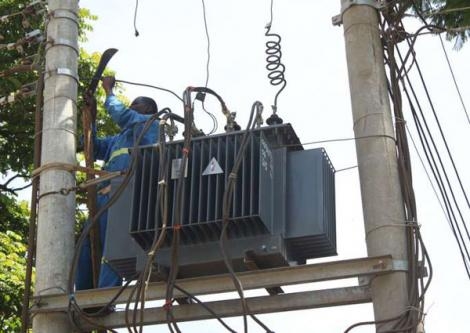The National Treasury revealed how the Kenya Power and Lighting Company’s (KPLC) antiquated machinery forced customers to purchase electricity tokens at higher costs.
Old transmission lines are to blame for high electricity costs, according to the Treasury, under the direction of Cabinet Secretary Njuguna Ndung’u, in the Draft 2023 Budget Policy Statement that was made public on Wednesday, January 18.
In addition to transmission lines, the Treasury noted that outdated distribution lines and transformers were also a factor in the high cost of electricity.
The policy statement also attributed frequent blackouts to KPLC’s aging and faulty equipment.
The draft policy statement stated, in part, that despite recent significant increases in generation capacity and total electrical connections, electricity in the nation remained expensive and unreliable.
The transmission and distribution network is “one of the major contributors to both the cost and quality of power,” it continued.

The revelation was made at the same time as widespread blackouts and complaints about equipment that wasn’t up to par.
To save consumers from excessive energy bills, President William Ruto’s administration promised to upgrade KPLC’s infrastructure.
In the Draft Budget Policy Statement that was made available for public comment, the Kenya Kwanza administration promised to mobilize the funds required to upgrade the transmission and distribution system.
In addition to updating the KPLC lines, Ruto also disclosed intentions to establish a liquefied natural gas (LNG) storage facility in Mombasa and speed up the development of geothermal resources in order to break Kenya Power’s monopoly.
The new energy sources will remove the nation’s excessive reliance on KPLC and even protect customers from high electricity costs.
The policy announcement stated, in part, that “this will also help Kenya reach its emission reduction commitments.”
The government also disclosed intentions to require KPLC to provide system and financial reports on a quarterly basis in order to shield the utility company from losses.
“Kenya Power will no longer be connected to government development programs, and the business will be allowed to follow commercial norms. Off-grid community-owned development projects (mini and microgrids) will be given a framework for legislation, regulation, and funding “the Kenya Kwanza government declared.




